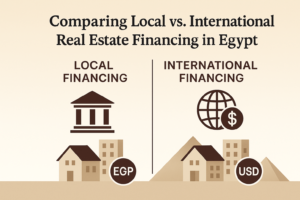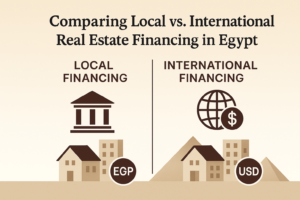What Are Real Estate Investment Trusts (REITs)?
Real Estate Investment Trusts (REITs) are companies that own, operate, or finance income-producing real estate. Designed to provide investors with consistent income and portfolio diversification, REITs are required to distribute at least 90% of their taxable income as dividends. Originally established in the U.S. in 1960, REITs now exist globally, shaped by local market and legal environments. They allow investors to participate in property markets—commercial, residential, and industrial—without owning physical buildings.
Types of REITs
Based on Investment Focus:
- Equity REITs: Own and operate physical properties, such as office buildings, retail malls, apartments, and healthcare facilities. Income comes from leasing space and collecting rent.
- Mortgage REITs (mREITs): Provide financing for income-producing real estate by purchasing or originating mortgages and mortgage-backed securities. They earn revenue primarily through interest.
- Hybrid REITs: Combine the strategies of equity and mortgage REITs for diversified income streams.
Based on Trading Structure:
- Publicly Traded REITs: Listed on major stock exchanges, these offer high liquidity and are accessible to individual investors.
- Public Non-Traded REITs: Registered with regulatory authorities but do not trade on stock exchanges, offering less liquidity but potentially more price stability.
- Private REITs: Not listed or registered publicly, typically limited to institutional or accredited investors, and often involve higher minimum investments.
By Sector:
REITs can be further categorized by their sector focus:
- Residential: Apartments, single-family rentals, student housing.
- Healthcare: Hospitals, medical offices, senior living.
- Retail: Shopping centers, outlet malls, urban retail.
- Industrial: Warehouses, distribution hubs, cold storage.
- Infrastructure: Cell towers, fiber optic networks, pipelines.
- Hospitality: Hotels and resorts.
- Specialized: Data centers, timberlands, and storage units.
Benefits of REITs
- Liquidity: Shares can be bought and sold easily on public markets.
- Stable Income: REITs typically pay regular dividends that appeal to income-focused investors.
- Diversification: Allows exposure to the real estate sector without direct ownership.
- Transparency: Subject to regulatory reporting and investor disclosures.
- Tax Efficiency: In some jurisdictions, dividends qualify for preferential tax treatment.
- Professional Management: Run by experienced real estate professionals.
Limitations and Risks
- Limited Growth: Due to high dividend payout requirements, REITs retain little capital for reinvestment.
- Interest Rate Sensitivity: Higher rates can make REIT yields less attractive.
- Taxation: Dividends are taxed as ordinary income in many countries.
- Market Volatility: Publicly traded REITs are subject to market swings.
- Fees: Management fees can reduce net returns, especially in non-traded and private REITs.
Spotlight: REITs in Egypt
Egypt has introduced a framework to develop and support REITs as tools for financing key real estate sectors, especially in response to national priorities like affordable housing, healthcare, logistics, and industrial zones.
Market Status:
- Regulated by the Financial Regulatory Authority (FRA).
- Most active in commercial, healthcare, and infrastructure projects.
- Limited but growing number of REITs, primarily supported by financial institutions and government-backed investment funds.
Opportunities in Egypt:
- Industrial Zones: Over 13 million square meters of serviced land offered in 22 governorates in 2025.
- Healthcare & Senior Living: Strong demographic trends and urban migration fuel demand.
- Tourism & Hospitality: Government programs aim to increase hotel capacity by 30% by 2030.
Government Incentives:
- Full tax exemption for five years in strategic sectors (e.g., hydrogen, EVs, solar).
- Subsidized land access, with prices as low as EGP 1,900/m² in Upper Egypt.
- Digital Licensing Portal: Over 380 administrative services are now digitized to reduce setup time.
- Refund incentives: Up to 50% of land cost refunded for projects completed ahead of schedule.
Case Example: Healthpeak Properties
A U.S.-based REIT specializing in healthcare, Healthpeak manages life sciences buildings, senior housing, and medical offices. With a $ 19 B+ market cap and 600+ properties, it exemplifies how focused REITs can benefit from strong demographic and healthcare trends globally—a model that Egyptian REITs could emulate.
Investor Due Diligence
Before investing in a REIT:
- Verify legal registration with bodies like the SEC (U.S.) or the FRA (Egypt).
- Review quarterly and annual reports for financial health.
- Understand dividend policies and management fee structures.
- Check market performance and sector exposure.
Conclusion
REITs blend real estate and financial market access, offering liquidity, stable returns, and diversification. In Egypt, they serve as an innovative gateway for financing industrial growth and national development. As the government continues to liberalize land access, enhance infrastructure, and digitize licensing, REITs are set to become a cornerstone of future investment strategy.
Want to explore REIT-based investment or establish a real estate-backed business in Egypt? Get in touch with our consultants today to learn how REITs can fuel your expansion goals across industrial, healthcare, and infrastructure sectors.
Book your free consultation now.

















